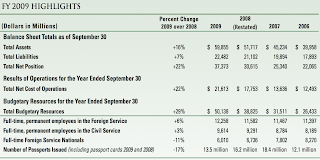Here is a quote published on Monday November 29th regarding the Wikileaks publication of 250,000 Department of State diplomatic cables:
"First and foremost, what steps were taken to stop Wikileaks director Julian Assange from distributing this highly sensitive classified material especially after he had already published material not once but twice in the previous months? Assange is not a “journalist,” any more than the “editor” of al Qaeda’s new English-language magazine Inspire is a “journalist.” He is an anti-American operative with blood on his hands....Why was he not pursued with the same urgency we pursue al Qaeda and Taliban leaders?
What if any diplomatic pressure was brought to bear on NATO, EU, and other allies to disrupt Wikileaks’ technical infrastructure? Did we use all the cyber tools at our disposal to permanently dismantle Wikileaks?....Shouldn't they at least have had their financial assets frozen just as we do to individuals who provide material support for terrorist organizations?
Most importantly, serious questions must also be asked of the U.S. intelligence system. How was it possible that a 22-year-old Private First Class could get unrestricted access to so much highly sensitive information? And how was it possible that he could copy and distribute these files without anyone noticing that security was compromised?
The White House has now issued orders to federal departments and agencies asking them to take immediate steps to ensure that no more leaks like this happen again. It’s of course important that we do all we can to prevent similar massive document leaks in the future. But why did the White House not publish these orders after the first leak back in July? What explains this strange lack of urgency on their part?
We are at war. American soldiers are in Afghanistan fighting to protect our freedoms. They are serious about keeping America safe. It would be great if they could count on their government being equally serious about that vital task."
As much as I'd like to, it's hard to argue with bits and pieces of her logic but I do take issue with her, lack, of, the, use, of, commas. I would say that it is well over the top to compare Mr. Assange with al-Qaeda but I guess one can always count on rallying the troops by invoking the spectre of Osama bin Laden. As for accessing sensitive information, it's really not that hard to imagine how someone with a $20 eight gigabyte flash drive could download gigabytes worth of documents in a matter of seconds, stick the drive in their pocket and walk out the door of a Department of State office building. Perhaps the Department needs to install its own body cavity search program similar to what is used by the TSA for the sweaty masses who chose to fly rather than take the bus. I'm also not certain that the entire blame for this leak can be laid at the feet of the Obama Administration; it's pretty hard to plug all of the leaks in a sieve just as it was difficult for the Bush 2 Administration to predict September 11th with a great degree of certainty (Richard Clarke not withstanding).
Yes, Ms. Palin, America is at war and sadly American military personnel are dying painfully to protect freedom. Sometimes there is no justice. However, from what we've seen so far, the greatest pain is that inflicted on the reputation of the Department of State. How many world leaders will now speak guardedly in the presence of State diplomats? How much information is going to be gleaned from future conversations with Prince Andrew?
A question that Ms. Palin should be asking is "Why is the Department of State wasting energy on following the proclivities of world leaders, quoting the Royal Family and other matters that have absolutely nothing to do with the Department's Mission? It’s quite apparent that the Department has strayed from its Mission as stated here:
“Advance freedom for the benefit of the American people and the international community by helping to build and sustain a more democratic, secure, and prosperous world composed of well-governed states that respond to the needs of their people, reduce widespread poverty, and act responsibly within the international system.”
In this time of multi-trillion deficits, would the financial resources used to procure and disseminate that information not been better used elsewhere? Would that money have benefited some of the nearly 15 million unemployed Americans, 2 million of whom are about to lose their unemployment benefits simply because Congress is dragging its feet on extending benefits to the unfortunates who have been unemployed for more than 6 months? That is the true crime that is being perpetuated on the American people.



















